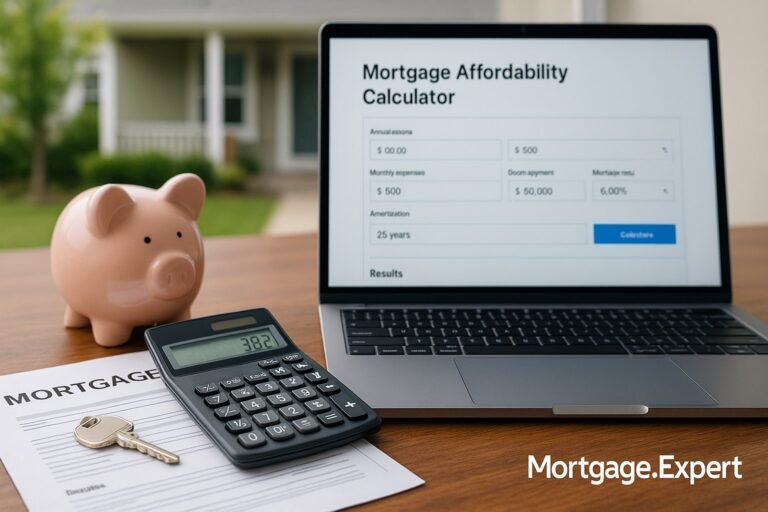
10 Essential Tips For A Smooth Condo Buying Experience
Buying a condo in Canada? Discover 10 essential tips to make your condo buying journey smooth, stress-free, and financially smart in 2025
Thinking about buying a condo but not sure where to start? Whether you’re a first-time buyer or simply downsizing from a house, condo living can offer convenience, community, and comfort — but only if you make smart decisions from the start.
This guide walks you through 10 essential steps that can help you avoid the most common pitfalls of condo ownership and ensure your purchase is a smooth one. From budgeting to building rules, here’s everything you need to know before signing on the dotted line.
🏢 10-Step Condo Buying Journey – From Search to Closing
- 🎯 Define Your Goals: Decide whether this condo is for living or investment.
- 💰 Set a Budget: Review your income, expenses, and calculate affordability.
- 🏦 Get Pre-Approved: Secure mortgage pre-approval to understand your buying limit.
- 📍 Choose a Location: Shortlist neighbourhoods based on lifestyle and commute.
- 🏗️ Research Developers: Investigate the builder’s history and building quality.
- 📄 Review Condo Docs: Analyze bylaws, status certificate, and reserve fund health.
- 🔍 Inspect the Unit: Hire a professional to identify any hidden issues.
- ✍️ Make an Offer: Work with a realtor to draft a competitive, conditional offer.
- 🔏 Finalize Mortgage: Submit all documents and lock in your financing.
- 📦 Move In! Complete the closing, get your keys, and enjoy your new home!
1. Think Through Your Goals Before You Begin
Before you start looking at granite countertops and rooftop patios, pause to think about your why. Are you buying a condo to live in for the next 5 years? Or is this a long-term investment property?
Your goals will shape everything else — from the neighbourhood you choose to the size of the unit and the amenities you care about. For example, a retiree might want quiet common areas and elevator access, while a young professional might prioritize gym access and proximity to transit.
Also consider resale value. Will this unit be easy to sell in a few years? What does the neighbourhood’s growth potential look like?
2. Set Your Budget and Understand What You Can Afford
A condo often comes with lower sticker prices than detached homes, but don’t be fooled — you’re also responsible for monthly condo fees, special assessments, and possibly renovation costs.
Start by calculating:
- Your total monthly income
- Fixed expenses (car, debts, subscriptions, etc.)
- Available savings for the down payment
Then estimate your purchase budget based on pre-approval limits and monthly carrying costs.
| 🔍 Feature | 🏢 Condo | 🏠 House |
|---|---|---|
| Initial Cost | Generally lower | Typically higher |
| Monthly Fees | Condo fees for maintenance & amenities | None, but must pay for upkeep individually |
| Maintenance | Building handles exterior and common area upkeep | Homeowner responsible for all repairs |
| Rules & Bylaws | Yes – dictated by the condo board | Minimal – you set the rules |
| Amenities | May include gym, pool, concierge | Only what you personally add |
| Privacy | Lower – shared walls and spaces | Higher – detached or semi-detached layout |
| Outdoor Space | Limited – balcony or shared space | More spacious – private yard or garden |
3. Get Pre-Approved for a Mortgage
Pre-approval isn’t just a piece of paper. It helps you:
- Lock in an interest rate for up to 120 days
- Know how much lenders are willing to loan you
- Show sellers that you’re a serious buyer
Start this process early so you’re not disappointed later by falling in love with a unit you can’t afford.
📝 What Happens During Mortgage Pre-Approval in Canada
- ✅ Credit Check: Your lender pulls your credit report to assess risk.
- 📄 Income & Employment Verification: You’ll need to provide recent pay stubs, T4s, or NOAs.
- 💰 Debt Ratio Calculation: Lenders calculate your GDS and TDS to see what you can afford.
- 🏦 Down Payment Confirmation: Proof of funds via bank statements or RRSPs.
- 📬 Pre-Approval Letter Issued: You’ll receive a letter showing your pre-approved loan amount and rate hold (typically 90–120 days).
- 🔍 Rate Lock: Your interest rate may be locked in while you house hunt.
- 🚫 Note: Pre-approval is not a loan guarantee—it’s conditional on property and documentation review.
4. Research the Right Condo Development
All condos are not created equal. Even if two buildings sit on the same street, one might have a great reputation while the other has plumbing issues, lawsuits, or unreasonable fee hikes.
Look for:
- Reputable builders with a track record
- Neighbourhoods with growth potential
- Access to transit, schools, hospitals
- Amenities you’ll actually use (and not pay for needlessly)
Check Google reviews, online forums, and ask your realtor about past issues in the building.
5. Understand the Rules and Fees
When you buy a condo, you’re not just buying a home — you’re buying into a community with its own bylaws, rules, and shared responsibilities.
Monthly condo fees can cover building maintenance, landscaping, insurance, amenities, and even utilities. But they can also go up — especially if the reserve fund is low.
💸 Common Condo Fees Breakdown in Canada
- 🏢 Building Maintenance: Covers cleaning, repairs, and upkeep of common areas like hallways, elevators, and lobbies.
- 🛗 Reserve Fund Contributions: Money set aside for major future repairs (e.g., roof, garage, plumbing).
- 🚰 Utilities: May include water, heating, and sometimes electricity depending on the condo.
- 🧹 Garbage & Recycling: Covers waste management services for the building.
- 🏊 Amenities: Maintenance of gyms, pools, party rooms, etc., if available.
- 👮 Security: Monitoring, intercom systems, cameras, or on-site personnel if applicable.
- 🛠️ Property Management Fees: Salaries and costs associated with third-party building management companies.
📄 What’s Included in a Status Certificate (Canada – 2025)
- ✅ Financial Health of the Condo Corporation – Includes operating budget and reserve fund balance.
- ✅ Pending Special Assessments – Notes if upcoming large repairs will require extra owner contributions.
- ✅ Unit Owner’s Fee Obligations – Shows monthly condo fees and any arrears.
- ✅ Condo Rules & Restrictions – Includes bylaws, pet policies, rental rules, noise restrictions, etc.
- ✅ Insurance Coverage Details – Explains the building’s insurance and what unit owners must insure separately.
- ✅ Legal Disputes – Discloses if the condo corporation is involved in any lawsuits.
- ✅ Board Meeting Minutes & Notices – Offers insight into recent issues and management discussions.
6. Always Review the Status Certificate
The condo’s status certificate is one of the most important documents you’ll receive. It tells you:
- How much money is in the reserve fund
- Whether any lawsuits are ongoing
- If any special assessments are planned
- The unit’s current fee structure
You have 5 days after receiving the status certificate to review it with your lawyer. This is your chance to back out if anything looks risky.
7. Get a Professional Inspection
Even though condos are lower-maintenance than houses, the inside of your unit still matters. Hire a certified inspector to check for:
- Water leaks or signs of mould
- Heating and cooling issues
- Appliance condition
- Plumbing and electrical
- Soundproofing quality
If repairs are needed, this gives you leverage to negotiate with the seller — or to walk away.
🔍 What’s Included in a Canadian Home Inspection (2025)
- 🧱 Foundation & Structure – Checks for cracks, settlement issues, or signs of structural damage.
- 🔌 Electrical System – Outlets, wiring, breaker panel, grounding, and potential fire risks.
- 🚿 Plumbing System – Pipes, water pressure, drainage, and any signs of leaks or corrosion.
- ❄️ Heating, Ventilation, and AC (HVAC) – Age, efficiency, and overall function of systems.
- 🪟 Windows & Doors – Functionality, insulation, and signs of drafts or damage.
- 💧 Roofing & Gutters – Shingles, flashing, drainage, and potential leak risks.
- 🦠 Moisture & Mould Checks – Detects signs of water intrusion or hazardous growths.
- 🕳️ Pests & Rodents – Looks for droppings, nests, or infestation indicators.
- 🅿️ Garage & Driveway – Structure, safety, and drainage around exterior features.
8. Make a Strong, Informed Offer
Once you’ve done your homework, it’s time to make an offer. Your real estate agent will help you decide how much to offer and what conditions to include (like financing and inspection).
In a competitive market, you may need to act fast — but don’t skip the key steps just to “win” a bidding war. It could cost you far more in the long run.
9. Close the Deal With Care
Once the offer is accepted, the finish line is in sight! But don’t relax just yet. You’ll still need to:
- Finalize your mortgage with your lender
- Sign legal documents with your lawyer
- Arrange for final walkthroughs and payments
- Get home insurance
- Set up utilities and move-in dates
Be organized and lean on your real estate team to ensure everything is done before closing day.
🗓️ Closing Day Checklist for First-Time Buyers (Canada 2025)
- ✅ Final Walkthrough – Check the property condition and ensure agreed-upon repairs are done.
- ✅ Bring Valid ID – Driver’s license or passport is needed for identity verification.
- ✅ Certified Bank Draft – For your down payment and closing costs.
- ✅ Review Mortgage Docs – Go over interest rate, payment schedule, and term details one last time.
- ✅ Sign Legal Documents – Title transfer, mortgage agreement, and disclosure forms.
- ✅ Get Your Keys – Once funds are transferred and paperwork is complete.
- ✅ Setup Utilities – Confirm hydro, gas, water, and internet are set to start on move-in day.
- ✅ Celebrate! – Take a deep breath, you’re officially a homeowner 🎉
10. Ease Into Your New Condo Life
Once you’ve moved in, take time to get familiar with:
- Condo rules and regulations
- Garbage collection schedules
- Building entry systems and maintenance contact info
- Community events or meetings
Introduce yourself to your neighbours and settle in slowly. It’s your home now — make it your own!
💬 Frequently Asked Questions
Q: What’s the difference between a condo and a freehold townhouse?
A: A condo includes shared ownership of common areas (like hallways, lobbies, amenities), while freehold means you own the land and building entirely. Condos also come with monthly maintenance fees.
Q: Can condo fees go up after I buy?
A: Yes. If the reserve fund is too low or repairs are needed, your building may raise fees or impose a special assessment.
Q: Should I get a lawyer before making an offer?
A: It’s strongly recommended. A real estate lawyer will review the status certificate, condo bylaws, and offer paperwork to ensure everything is in your best interest.
💰 Monthly Cost Comparison: Condo Living vs Renting (Toronto – 2025)
| Expense | Condo Owner | Renter |
|---|---|---|
| Mortgage Payment (Principal + Interest) | $2,050 | – |
| Monthly Condo Fees | $450 | – |
| Property Taxes | $250 | – |
| Home Insurance | $70 | Included in Rent |
| Total Monthly Cost | $2,820 | $2,450 |
Note: Based on a $500,000 condo with 20% down at a 5.25% interest rate over 25 years. Renter estimate is based on average GTA rent for a 2-bedroom unit.
🔚 Final Thoughts
Buying a condo in Canada isn’t just about finding the perfect unit — it’s about protecting your finances, lifestyle, and future resale value. With the right planning and guidance, you can confidently move forward and enjoy all the benefits of condo life.
Stuck with a Mortgage Decision?
Don’t stress — our team is here to help. Reach out for free, no-obligation guidance.
Contact the Experts



